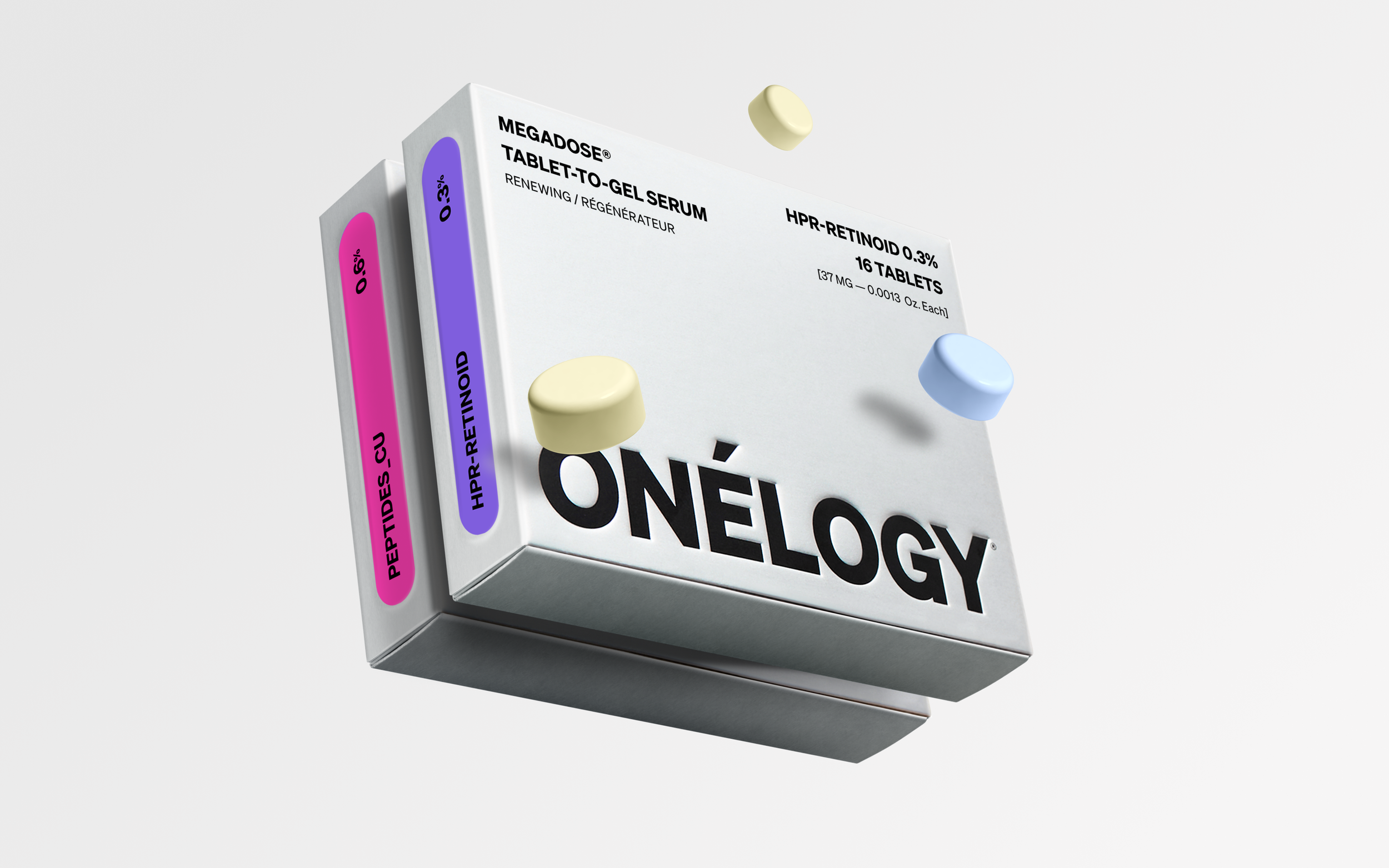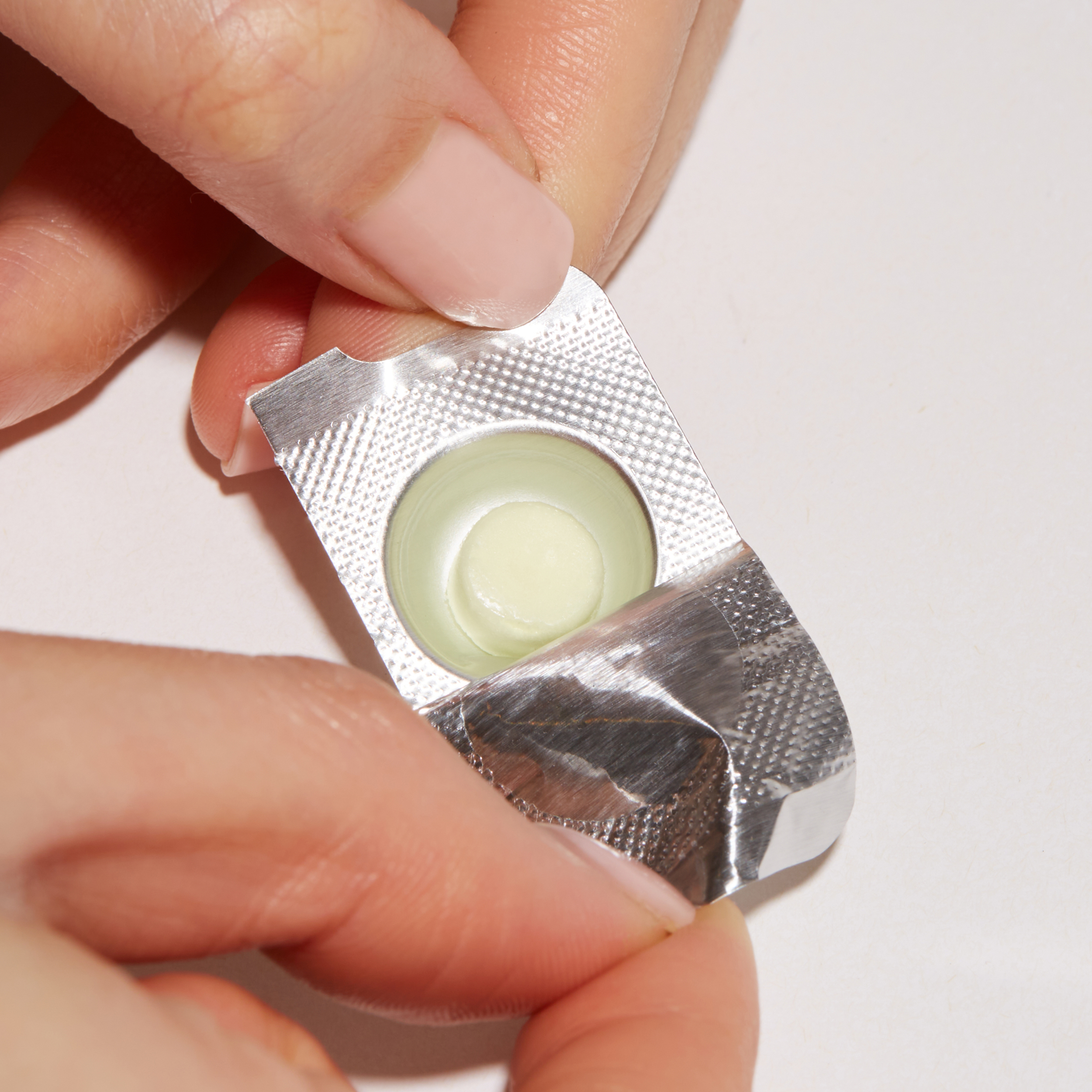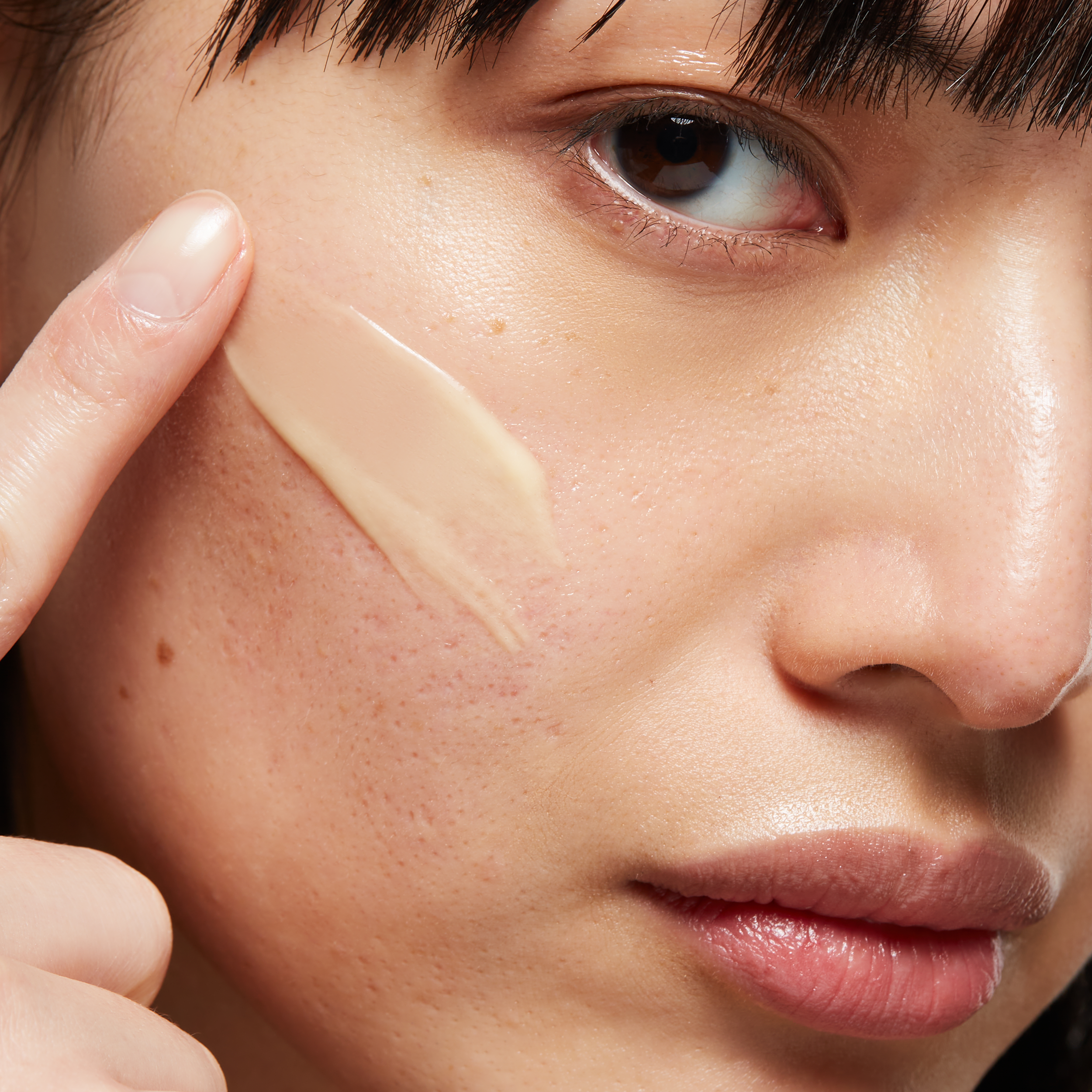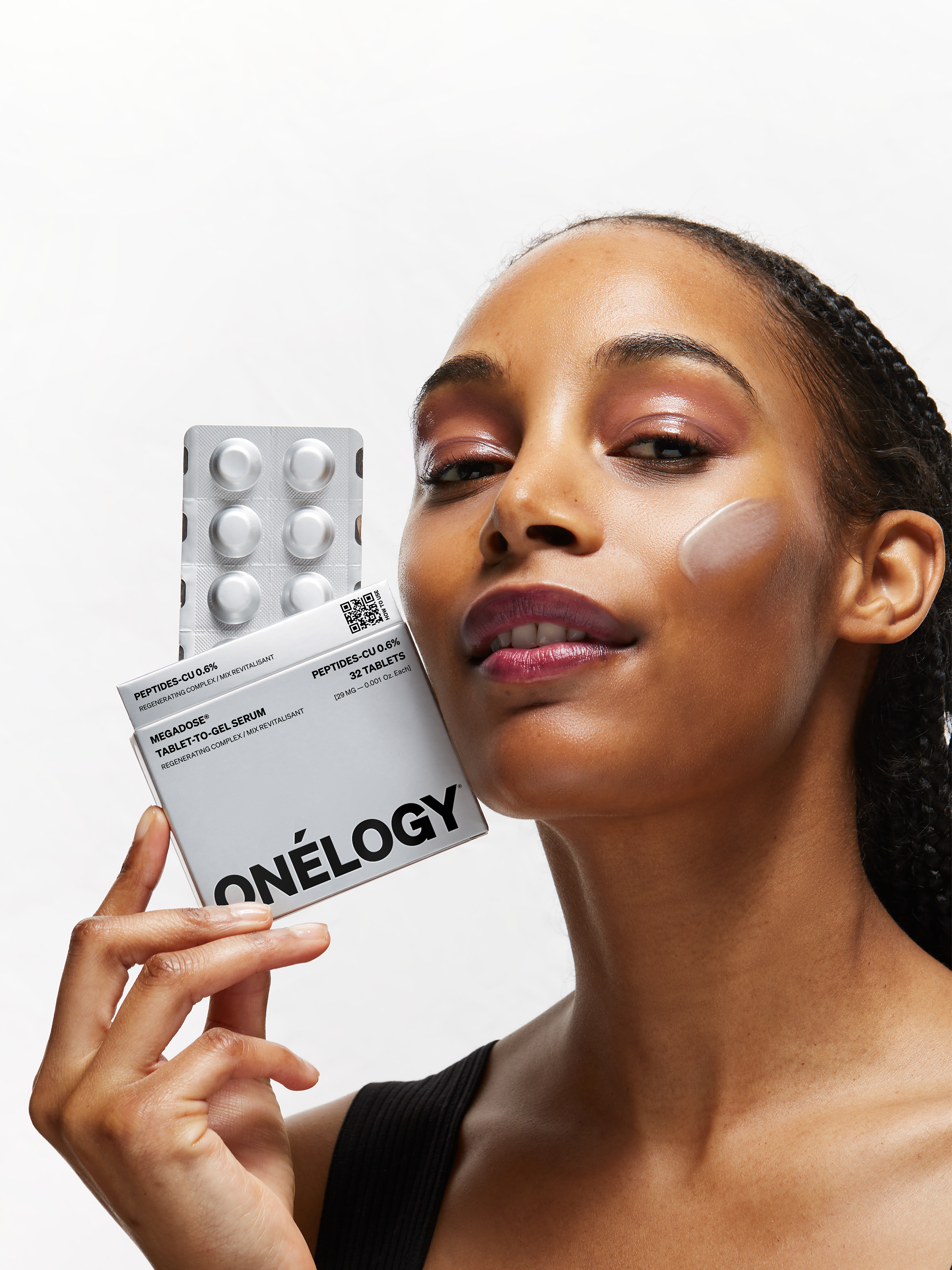Roxana Bazgoneh on Building Onélogy and a Different Kind of Skincare
Credit photo: @dinokuznik
*ONÉLOGY
*ONÉLOGY
Roxana Bazgoneh began her career building the image of some of the world’s biggest beauty brands. Over time, she noticed a troubling pattern: familiar formulas repackaged and resold, while the real questions of transparency and efficacy were rarely addressed. For someone with sensitive skin, that gap wasn’t abstract, it was felt on her own face.
A bad reaction to a serum, marketed as identical but quietly reformulated for another market, became a turning point. It was the moment she decided that meaningful change in beauty wouldn’t come from a new campaign but from rethinking the product itself.
That decision led to Onélogy, a brand built on fewer ingredients, patented freeze-dried technology, and a belief that efficacy and restraint can go hand in hand. Bazgoneh draws on her Iranian heritage, Parisian sensibility, and New York experience to propose a different rhythm for skincare, one that values intention over accumulation.
Her approach taps into a wider cultural shift: a growing fatigue with overloaded routines and a renewed appetite for clarity. In our full conversation, Bazgoneh speaks about the frustrations that shaped her vision, the science behind her formulas, and why she believes less can genuinely do more.
If this article resonated, come inside the Future of Skincare newsletter on Substack. Beauty Signals is the deeper layer within it, weekly patterns where skincare meets culture, for skin intellectuals, beauty anthropologists, and the cosmetics curious. Read the opening free, full access at latte with me level.
- Before launching Onélogy, you built a career shaping the image of iconic beauty brands. When did you realize you wanted to disrupt, rather than design for, the status quo? After years of working behind the scenes crafting visual identities for major beauty brands, I realized that the industry kept selling the same formulas in different packaging. As someone with sensitive skin, I was also growing increasingly frustrated by products that were over-engineered and underperforming. At some point, it became clear that real innovation wouldn't come from rebranding—it had to come from rethinking the fundamentals.
- Your own skin sensitivities played a key role in founding the brand. Can you share the turning point when frustration transformed into innovation? It was during a particularly bad reaction to the American version of my usual French pharmacy serum—ironically marketed as exactly the same—that I began researching what was really in my skincare. I was shocked both versions had different formulas (without any mention of it) and it just added to the pile of devious transparency practices within the industry. After that I started clearing out all the products I accumulated over the years in my bathroom cabinet and realized the Vitamin C serum I bought just a few weeks earlier had already turned brown. Those moments of frustration turned into a personal challenge: could I create something radically simple, clinically effective, and skin-respecting?
- Growing up between Iranian heritage and Parisian culture, and later working in New York, how has your multicultural lens shaped your philosophy of beauty? It gave me a very layered perspective. Iranian beauty rituals are ancestral, sensorial, and deeply tied to natural ingredients. Paris taught me elegance through restraint. New York brought me innovation, speed, and fearlessness. Onélogy is a synthesis of those influences: science-rooted, aesthetically refined, and globally conscious.
- What were the non-negotiables when building Onélogy, values you refused to compromise, even if they made things harder? Efficacy without compromise. Radical transparency. And sustainability that’s built into the product—not just the marketing. That meant turning down cheaper solutions or flashy ingredients (or concentrations) that didn’t serve the skin. It wasn’t always the easiest path, but it was the only one that felt honest.
- Freeze-drying is familiar in pharmaceuticals, not in skincare. What gave you the confidence that this scientific method could become a new beauty ritual? Lyophilization is used in medicine because it protects the most delicate, potent ingredients. I asked: why not bring that same level of care to skincare? Once we saw the stability data and the way it preserved bioactivity, we knew we had something that wasn’t just a novelty—it was a better delivery system.
- Your serum tablets require water activation just before use. Was this ritualistic element something you deliberately designed, or did it emerge organically from the technology? It emerged from the technology, but we quickly embraced it as a feature, not a compromise. That moment of activation becomes a small daily ritual—a signal that this is something intentional, something potent. It invites the user to pause and connect with what they’re putting on their skin.
- Onélogy holds a patent for its freeze-dried formulation. What makes your method not just different, but defensibly innovative? Our patent protects a proprietary process that allows us to stabilize high-performance actives within complex formulas whether it’s emulsions or lipophilic ingredients, where historically lyophilisation is very difficult. What’s defensible isn’t just the freeze-drying itself—it’s how we’ve engineered the entire product system around it, from formulation to delivery.
- So much of beauty is tied to texture and sensoriality. How did you ensure that a clinical format like a tablet still delivered a luxurious experience? We worked relentlessly on rehydration behavior—the way the serum melts into the skin. We designed each tablet to reconstitute into a velvety texture that feels fresh, never sticky or heavy. It’s minimal, but it feels indulgent in its purity.
- Each Megadose product features under eight ingredients. How do you decide what’s essential, and what’s simply there for effect? We start with the skin concern, not the trend. Every ingredient has to earn its place by showing clinical relevance and synergy with the formula. If it’s not there for performance or safety, it’s out. No texturizes, no gimmicks—just the actives your skin actually needs.
- Many brands chase complexity; Onélogy embraces restraint. How do you convince consumers that minimalism can actually deliver more? We don’t just tell them—we show them. The results speak for themselves. We also explain the science: fewer ingredients means fewer interactions, less irritation, and perfect concentration of what really matters. The skin cannot absorb more anyway!
- You’ve spoken about ‘cosmetic fatigue’, the burnout of overloaded routines. How does Onélogy help people rethink what their skin truly needs? We simplify without compromising performance. One tablet equals one targeted treatment, helping people focus on what their skin actually needs in the moment—not what marketing tells them they should use. It removes the pressure to finish products before they expire, and eliminates the guesswork around dosage. With Onélogy, skincare becomes intentional, not overwhelming.
- Your commitment to sustainability isn’t a campaign, it’s embedded in the product itself. What did “sustainability by design” look like behind the scenes? It started with mapping every part of the product lifecycle to identify where real impact could be made—then rethinking each piece, from formulation and ingredients to packaging, shipping, and shelf-life. Every element had to work together like a system, not in isolation. Sustainability wasn’t an afterthought—it was the brief from day one.
- Onélogy eliminates single-use plastic and claims up to 80% fewer emissions. What beauty industry habits do you hope to change through this approach? I’d love to see the end of oversized/heavy bottles filled mostly with water and stabilizers. Yes water is a necessary solubiliser in most formulas (a lot of ingredients are water soluble) but do we need to ship it? No. I want the industry to rethink packaging, shipping, and shelf-life. We don’t need to sacrifice the planet for pretty products.
- Who is the Onélogy consumer, not just in terms of skin concerns, but in mindset and values? I think they’re Skinimalists: they’re thoughtful, curious, and discerning. They want to address their needs in the most efficient way without extra fuss. They care about what goes on their skin and what that means for the world around them. They’re done with overpromising—they want efficacy, integrity, and innovation that respects their intelligence and their lifestyle.
- Your tagline is ‘Skincare Reimagined.’ In your view, what does the beauty industry most urgently need to reimagine, and how is Onélogy part of that shift? The beauty industry needs to reimagine not just what skincare does, but how it’s made, how it’s used, and how it impacts the planet. Onélogy challenges the norms—from formulation to ritual to waste—and offers a new standard for what skincare can be.









